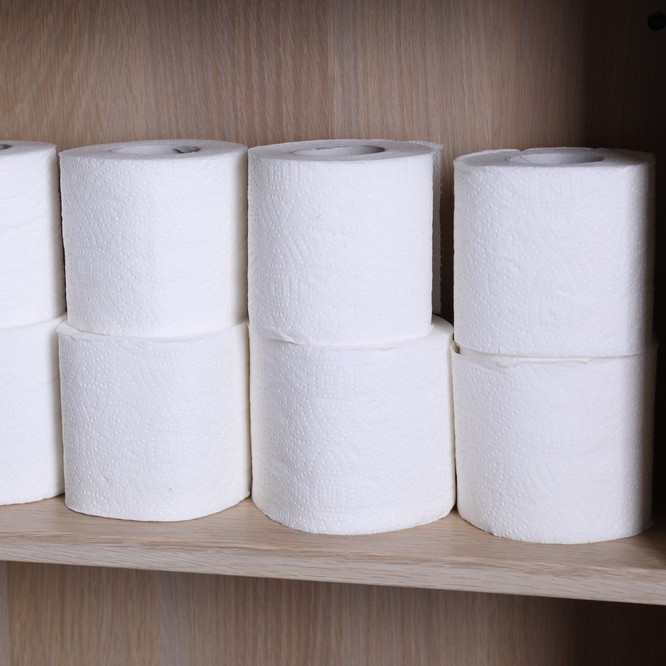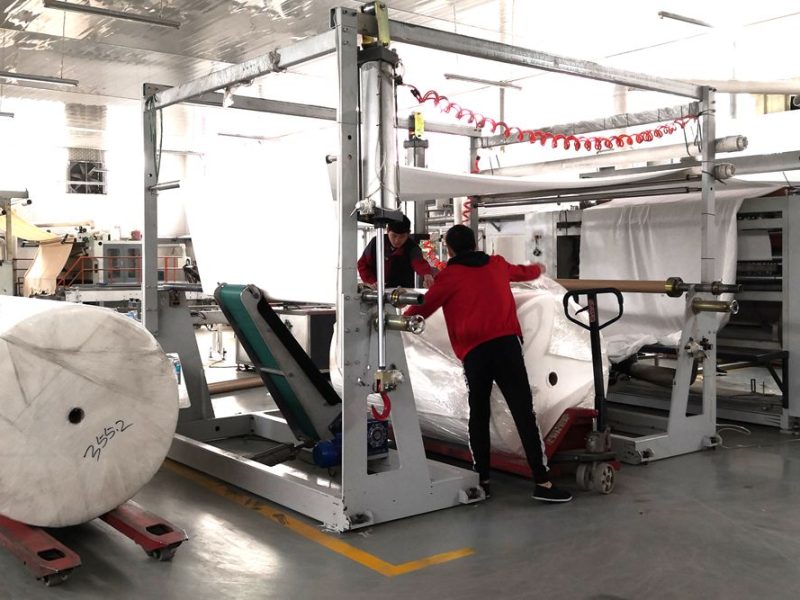Finding the right toilet paper contract manufacturing partner can make or break your business, especially when you’re dealing with high-volume production and demanding quality standards. This comprehensive guide walks you through the entire OEM process – from creating bulletproof technical specifications to managing quality control and building long-term partnerships that actually work. Whether you’re a retailer launching private label products or a distributor expanding your portfolio, you’ll discover the insider strategies that turn contract manufacturing from a headache into a competitive advantage.
Mastering OEM Partnerships: Your Roadmap to Successful Toilet Paper Manufacturing
Professional buyers with existing product designs often find themselves overwhelmed when diving into toilet paper contract manufacturing. The stakes are high – one bad batch can damage your brand reputation, while supply chain hiccups can leave shelves empty. Most industry guides barely scratch the surface, but this playbook delivers the real-world strategies you need.
We’re breaking down the entire toilet paper contract manufacturing journey, from those crucial first conversations with potential OEM partners to managing quality control systems that actually prevent problems before they happen. You’ll walk away with actionable insights that help you choose the right manufacturing partner and manage production like a pro.
Understanding the OEM Landscape for Hygiene Products
The hygiene sector operates differently than other manufacturing categories – quality standards are non-negotiable, regulatory requirements are strict, and customer expectations run sky-high.
Toilet paper contract manufacturing isn’t just about finding someone to make your product cheaper. The best OEM partnerships give you access to specialized equipment, deep industry knowledge, and supply chain networks that would take years to build on your own.
Why OEM Makes Sense for Toilet Paper
Smart buyers choose OEM toilet paper production for three main reasons. First, you get massive production scale without the capital investment – we’re talking about machinery that costs millions and requires specialized expertise to operate efficiently. Second, experienced hygiene manufacturers bring decades of knowledge about paper converting processes, material sourcing, and quality systems that prevent costly mistakes. Third, you can focus your energy on what you do best – building your brand, serving customers, and growing market share – instead of wrestling with production headaches.
Tailor Your Toilet Paper Brand to Fit Your Needs
With over 30 years of experience in toilet paper manufacturing, Top Source Hygiene offers customized solutions, ensuring quality and sustainability for your brand. Whether you're in hospitality, retail, or other sectors, we provide a range of options to suit your market requirements.

The Real Benefits of Strategic OEM Partnerships
- Production Capacity That Scales: High-volume toilet paper production requires serious infrastructure. The right OEM partner gives you access to production lines that can handle massive orders while maintaining consistent quality.
- Deep Technical Expertise: Converting raw pulp into consumer-ready toilet paper involves dozens of technical decisions. Your OEM partner should know exactly how different fiber types affect softness, how perforation patterns impact tear strength, and how packaging choices influence shelf life.
- Supply Chain Advantages: Established manufacturers have relationships with pulp suppliers, packaging vendors, and logistics providers that deliver better pricing and more reliable service than you could negotiate independently.
Building Your Foundation: From Concept to Prototype
The difference between successful and failed OEM projects almost always comes down to how well you define your requirements upfront – vague specifications lead to disappointing results.
Before any production equipment starts running, you need to get crystal clear about exactly what you want. This phase determines whether your toilet paper contract manufacturing project succeeds or becomes an expensive lesson.
Creating Your Technical Specification Package
Your Tech Pack becomes the bible for your entire project. Think of it as a detailed blueprint that eliminates guesswork and prevents costly misunderstandings. Every successful toilet paper manufacturing partnership starts with specifications that cover ply count, sheet dimensions, perforation patterns, roll density, core materials, and packaging requirements.
Material selection deserves special attention because it directly impacts your product’s performance and cost structure. Virgin pulp delivers premium softness but costs more than recycled alternatives. Bamboo fiber offers excellent sustainability credentials but requires specific processing expertise. Your OEM partner should help you understand these tradeoffs and source materials that match your quality targets and budget constraints.
The Sample Development Process
- Iterative Prototyping: Expect multiple rounds of samples before you nail the perfect product. Each iteration helps you fine-tune specifications and ensures the final product matches your vision exactly.
- Performance Testing: Professional-grade testing covers tensile strength, absorbency rates, softness metrics, and septic system compatibility. These tests prevent customer complaints and regulatory issues down the road.
- Packaging Integration: Your samples should include final packaging to test shelf appeal, protection during shipping, and ease of use for end customers.
Tailored Toilet Paper Solutions for Your Brand
Partner with Top Source Hygiene to create premium, customizable toilet paper products crafted with 30 years of manufacturing expertise. From eco-friendly materials to personalized packaging, we support brands worldwide with quality and reliable delivery.

Production Operations: Quality Control and Logistics Excellence
Great toilet paper manufacturing happens when production scheduling, quality systems, and logistics work together seamlessly – any weak link can derail your entire operation.
Once your specifications are locked in and samples approved, the real work begins. This phase separates professional OEM operations from amateur hour.
Smart Production Planning and Capacity Management
Effective demand forecasting drives everything else in your toilet paper contract manufacturing operation. Your OEM partner should work with you to develop realistic production schedules that account for seasonal demand fluctuations, promotional spikes, and minimum order quantity requirements. The best manufacturers maintain flexible capacity that can scale up during peak periods without compromising quality or delivery commitments.
Production lead time management becomes critical when you’re managing inventory levels and customer expectations. Professional OEM partners provide detailed production schedules, proactive updates about potential delays, and contingency plans for handling unexpected demand changes.
Comprehensive Quality Control Systems
Quality control in toilet paper manufacturing happens at every stage, not just at the end of the production line. The most effective systems include incoming material inspection to verify pulp specifications and chemical composition, in-process monitoring during converting and perforating operations, and final product testing before packaging and shipment.
- Raw Material Verification: Every batch of pulp gets tested for fiber length, brightness, moisture content, and contamination before entering production.
- Process Control Monitoring: Continuous tracking of roll tension, perforation accuracy, and core placement ensures consistent product performance.
- Final Quality Assurance: Finished products undergo testing for sheet count accuracy, tear strength, absorbency rates, and packaging integrity.
Logistics and Distribution Excellence
Your toilet paper needs to arrive at its destination in perfect condition, on time, and at the lowest possible cost. Smart OEM partners optimize packaging design for efficient shipping, maintain climate-controlled warehouse facilities, and coordinate with reliable freight providers who understand the unique requirements of paper products.
Effective logistics management includes real-time shipment tracking, proactive communication about delivery schedules, and flexible shipping options that accommodate your distribution network requirements.
Strategic Partnership Management: Building Long-Term Success
The best OEM relationships evolve beyond simple buyer-supplier transactions into true strategic partnerships where both parties invest in mutual success and continuous improvement.
Managing your toilet paper contract manufacturing partnership requires ongoing attention to performance metrics, risk management, and relationship building.
Performance Tracking and Continuous Improvement
Smart buyers establish clear key performance indicators from day one and track them religiously. Critical metrics include on-time delivery rates, quality defect levels, production efficiency measures, and total cost per unit. Regular performance reviews help identify improvement opportunities and address issues before they become serious problems.
The most successful partnerships include structured feedback loops where both parties share insights about market trends, process improvements, and cost reduction opportunities. Your OEM partner should proactively suggest ways to enhance product performance or reduce manufacturing costs.
Risk Management and Supply Chain Resilience
Professional toilet paper contract manufacturing requires comprehensive risk management strategies that address potential supply chain disruptions, quality issues, and capacity constraints. Smart OEM partnerships include diversified supplier networks, backup production capacity, and clear protocols for handling unexpected challenges.
| Responsibility Area | OEM Partner Focus | Buyer Focus | Collaborative Activities |
|---|---|---|---|
| Product Specifications | Execute according to approved Tech Pack | Provide detailed requirements and sample approval | Joint specification refinement and feasibility analysis |
| Material Sourcing | Secure quality materials per specifications | Define quality standards and sustainability requirements | Supplier diversification and certification programs |
| Production Management | Optimize scheduling and maintain quality standards | Provide accurate demand forecasts and flexibility requirements | Capacity planning and efficiency improvements |
| Quality Assurance | Implement comprehensive testing protocols | Define acceptance criteria and audit processes | Root cause analysis and corrective action planning |
| Logistics Coordination | Manage warehousing and shipping operations | Specify delivery requirements and distribution needs | Route optimization and freight cost management |
| Risk Management | Identify production and operational risks | Assess market and strategic risks | Joint contingency planning and crisis response |
Contract Management and Dispute Resolution
Successful toilet paper contract manufacturing agreements include detailed specifications for product quality, delivery schedules, pricing structures, and intellectual property protection. Clear contracts prevent misunderstandings and provide frameworks for resolving disputes when they arise.
The strongest partnerships prioritize open communication and collaborative problem-solving over adversarial contract enforcement. Regular business reviews help address concerns before they escalate into formal disputes.
Tailored Toilet Paper Solutions for Your Brand
Partner with Top Source Hygiene to create premium, customizable toilet paper products crafted with 30 years of manufacturing expertise. From eco-friendly materials to personalized packaging, we support brands worldwide with quality and reliable delivery.

Your Path to OEM Manufacturing Success
You’ve now seen the complete roadmap for successful toilet paper contract manufacturing – from developing rock-solid technical specifications to building partnerships that deliver consistent results year after year. The key insight here is that OEM success depends far more on relationship management and systematic processes than on finding the cheapest factory.
The most successful buyers treat their OEM partners as strategic allies rather than simple vendors. They invest time in clear communication, comprehensive planning, and continuous improvement initiatives that benefit both parties. When you get this relationship dynamic right, contract manufacturing becomes a competitive advantage that helps you deliver better products at lower costs with greater reliability.
Remember that choosing the right toilet paper contract manufacturing partner sets the foundation for everything that follows. Look for manufacturers with proven track records, comprehensive quality systems, and genuine commitment to partnership success. The investment you make in finding and developing the right OEM relationship will pay dividends for years to come.
FAQ: Essential Questions About Toilet Paper Contract Manufacturing
What makes OEM toilet paper manufacturing different from private label production?
OEM toilet paper production means the manufacturer creates products according to your exact specifications and designs. You provide detailed Tech Packs covering everything from pulp type to perforation patterns, and the manufacturer executes your vision precisely. Private label manufacturing typically involves selecting from pre-existing product formulations and simply adding your branding. With OEM, you control every aspect of product design and performance, while private label offers faster time-to-market but less differentiation.
How detailed should my Tech Pack be for toilet paper manufacturing?
Your Tech Pack needs to be incredibly comprehensive because toilet paper manufacturing involves numerous variables that affect final product performance. Include specifications for raw materials (pulp type, brightness, chemical additives), physical dimensions (sheet size, perforation spacing, roll diameter, core specifications), performance requirements (tensile strength, absorbency, softness), and packaging details (wrapper materials, labeling, case packing). The more detailed your Tech Pack, the more likely you’ll get exactly what you want on the first production run.
What quality control measures should I expect from a professional toilet paper manufacturer?
Professional manufacturers implement quality control at multiple stages throughout production. Incoming material inspection verifies that pulp, cores, and packaging materials meet your specifications. In-process monitoring tracks critical parameters like ply bonding strength, perforation accuracy, and roll density during production. Final product testing evaluates finished rolls for sheet count, tear strength, absorbency performance, and packaging integrity. Look for manufacturers who provide detailed quality documentation and maintain full batch traceability.
How long does toilet paper contract manufacturing typically take from start to finish?
Timeline varies significantly based on product complexity and order volume, but typical projects take 3-6 months from initial contact to first delivery. This includes initial discussions and Tech Pack development (2-4 weeks), sampling and approval cycles (4-8 weeks depending on revisions needed), raw material procurement (4-6 weeks), production and quality control (4-8 weeks), and shipping time (varies by destination). Rush orders may be possible but usually carry premium pricing and require flexible specifications.
How can I protect my product designs and specifications in an OEM arrangement?
Intellectual property protection requires comprehensive legal agreements before sharing any proprietary information. Ensure your contract includes non-disclosure agreements covering all design details, intellectual property clauses stating that your specifications and any derived innovations belong exclusively to you, confidentiality provisions preventing the manufacturer from using your designs for other customers, and clear manufacturing limitations defining exactly how the OEM can use your intellectual property. Regular audits and strong contractual protections are essential for maintaining control over your designs.
How do professional OEM partners handle supply chain disruptions?
Experienced toilet paper manufacturers maintain robust risk management systems including diversified supplier networks for critical raw materials, strategic inventory buffers to cushion against short-term disruptions, comprehensive contingency plans covering alternative production scenarios and backup logistics providers, and transparent communication protocols that keep you informed about potential issues before they impact your orders. The best partners work collaboratively with you to develop joint risk management strategies that protect both parties.
Can my OEM partner help with regulatory compliance for different markets?
Reputable toilet paper manufacturers with international experience can provide valuable guidance on regulatory requirements for your target markets. While ultimate compliance responsibility rests with you as the brand owner, experienced OEM partners understand regional differences in safety standards, labeling requirements, environmental regulations, and testing protocols. They can help ensure your products meet necessary health and safety standards, provide appropriate certifications like FSC for sustainable sourcing, and guide you through market-specific requirements for successful product launches.


